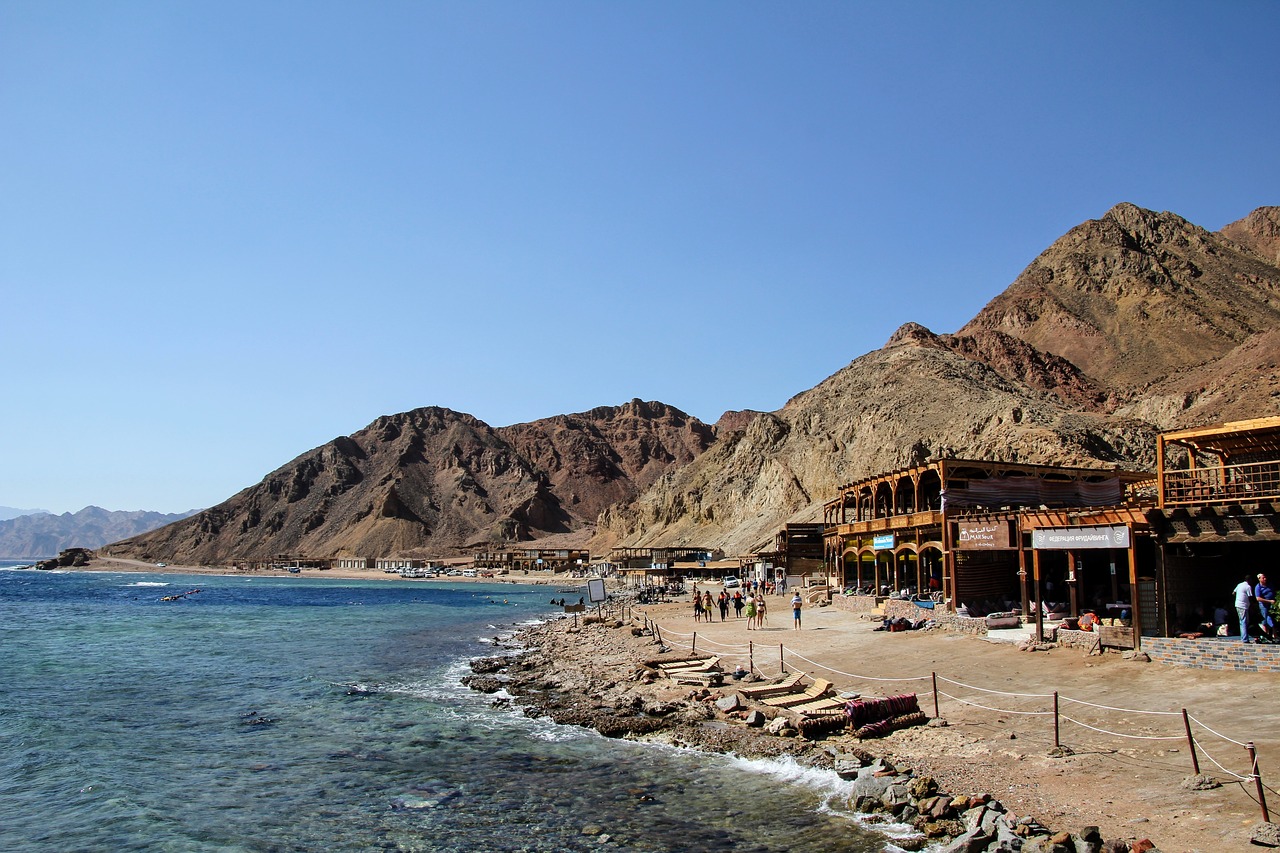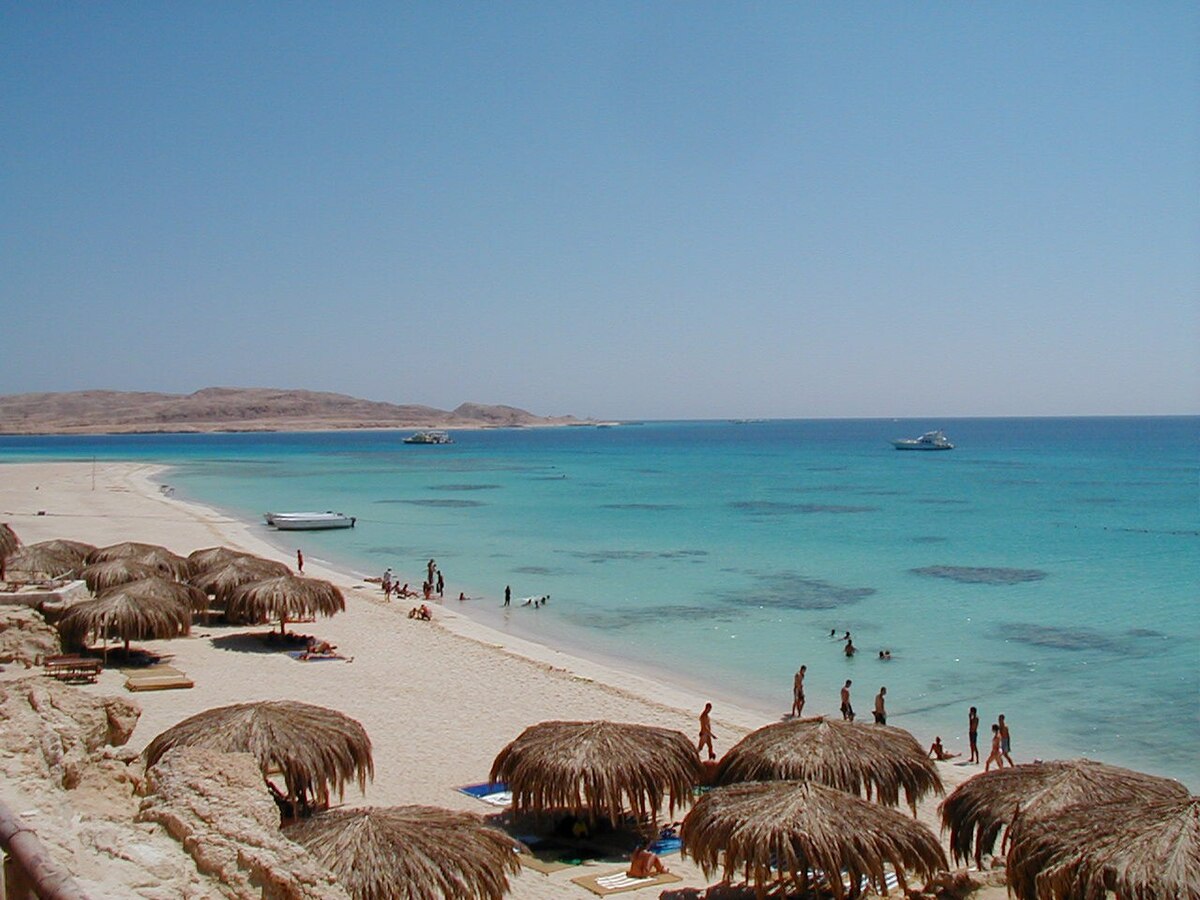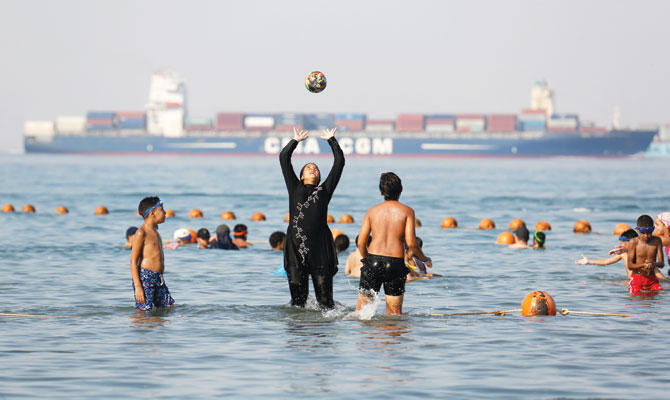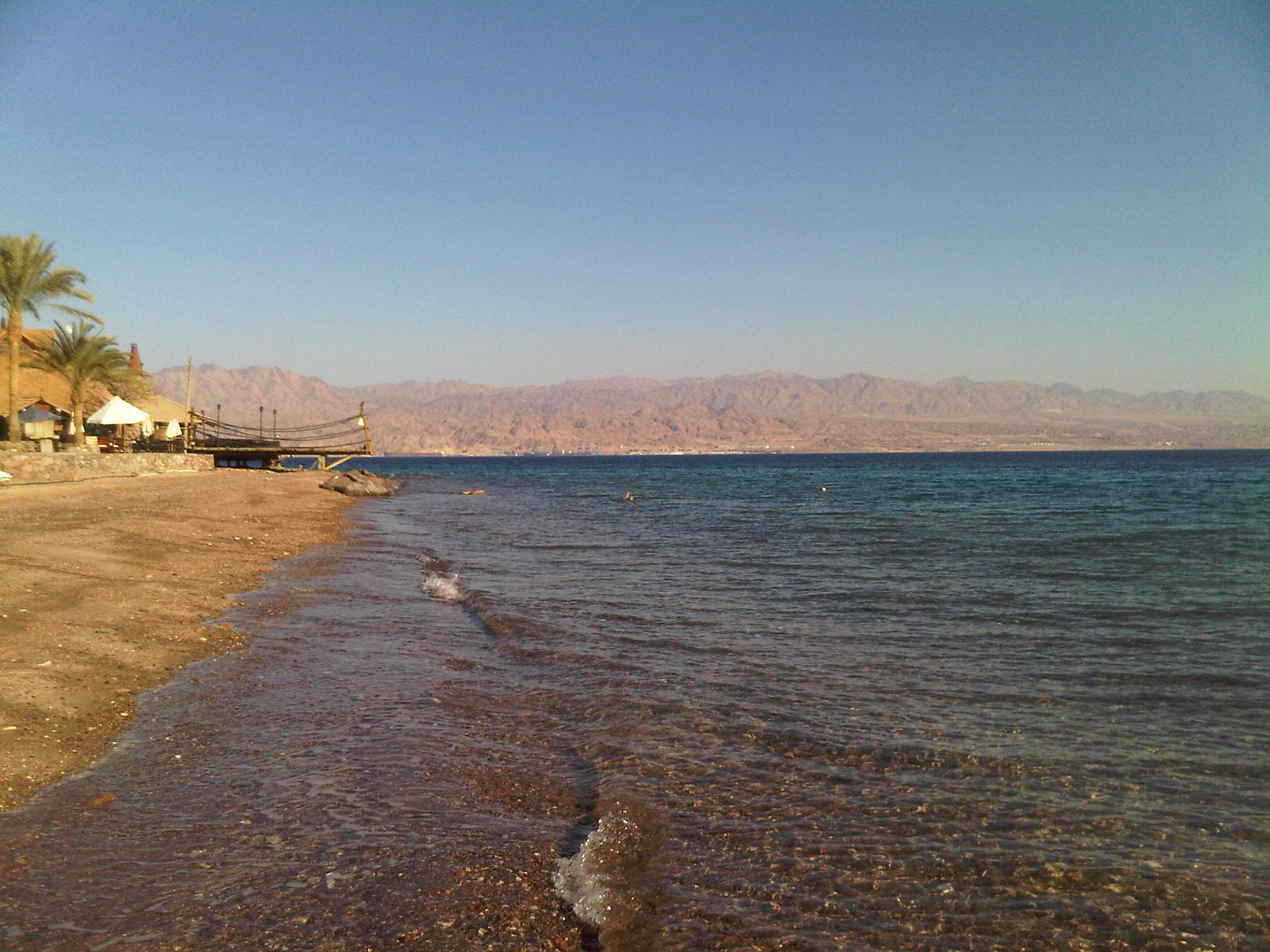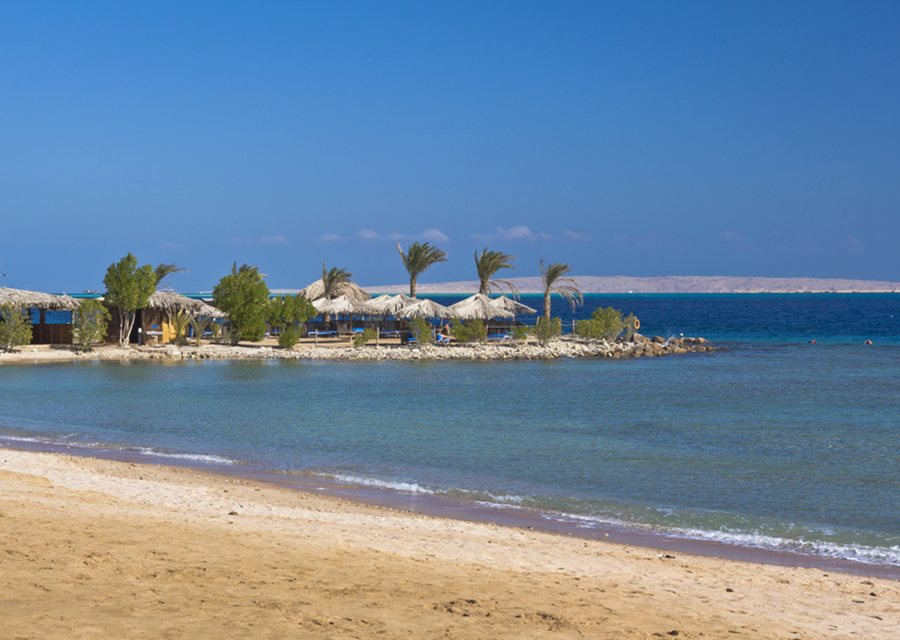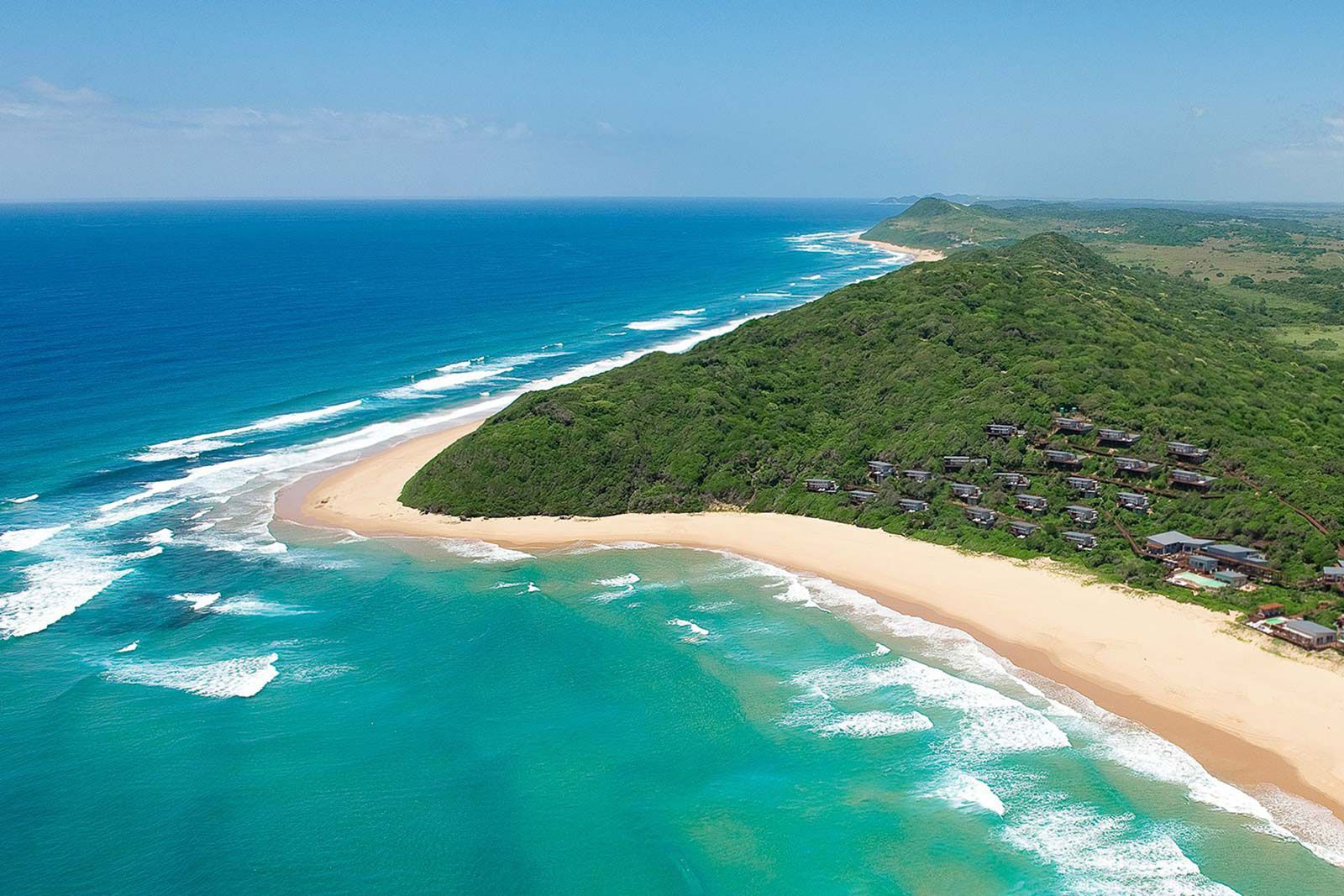Views Of The Red Sea
About
location:
Southern Arabian Peninsula
The Red Sea is a seawater inlet of the Indian Ocean lying between Africa and Asia. It is located in the Middle East and is bordered by Egypt to the west. The Red Sea is known for its stunning crystal-clear waters, vibrant marine life, and beautiful coral reefs, making it a popular destination for diving and snorkeling enthusiasts.
In Egypt, the Red Sea coast is a major tourist destination, with resort towns such as Hurghada, Sharm el-Sheikh, and Marsa Alam attracting visitors from around the world. These coastal cities offer luxurious resorts, water sports activities, and opportunities to explore the underwater world through diving and snorkeling.
Besides its tourism appeal, the Red Sea also plays a significant role in international trade, providing a vital shipping route between Europe and the Middle East. The Suez Canal, which connects the Mediterranean Sea to the Red Sea, is a critical waterway for global commerce, allowing ships to bypass the lengthy trip around the southern tip of Africa.
Riding along the Red Sea coast in Egypt, you will find a diverse range of activities and attractions to enjoy. For those interested in history and culture, there are ancient sites and landmarks to explore, such as the historic city of Luxor with its temples and archaeological wonders.
The Red Sea region in Egypt is also home to stunning desert landscapes, including the Eastern Desert and the Sinai Peninsula, where visitors can experience camel treks, jeep safaris, and Bedouin cultural experiences.
For water enthusiasts, the Red Sea offers world-class diving opportunities, with the chance to swim alongside colorful fish, dolphins, and even sharks in the clear waters. The coral reefs of the Red Sea are among the most diverse and well-preserved in the world, providing a unique underwater experience for snorkelers and scuba divers alike.
In addition to water sports and marine adventures, the Red Sea coast in Egypt boasts luxurious resorts and spas that cater to every need, from relaxing beach getaways to high-end dining and entertainment options.
Whether you are seeking an adrenaline-pumping adventure, a relaxing beach holiday, or a cultural exploration, the Red Sea in Egypt has something for everyone. Its unique blend of natural beauty, rich history, and vibrant marine life make it a destination that truly offers a one-of-a-kind travel experience.
Things to know before travelling to The Red Sea
This article is a tip of the iceberg but will equip you with the "Absolute Need to Knows" for The Red Sea.
How to get there?
There are few ways to get to the Red Sea in Egypt. You can fly to Sharm el-Sheikh International Airport (SSH), which is located on the southern tip of the Sinai Peninsula and is the closest major airport to the Red Sea. From there, you can take a taxi which will take you directly to your hotel or resort.
Or you can fly to Hurghada International Airport (HRG), which is located on the Egyptian mainland and is another popular destination for Red Sea holidays. From there, you can then take a taxi, bus, or private transfer to your final destination.
If you prefer to travel by land, you can also take a bus or private transfer from Cairo or Alexandria to the Red Sea. The journey takes about 8-10 hours by bus or 5-6 hours by car.
Once you arrive at the Red Sea, you can enjoy a variety of activities such as scuba diving, snorkeling, windsurfing, and sunbathing.
About the weather
The Red Sea coast of Egypt has a subtropical climate, with hot and sunny summers and mild winters. During the summer months (June to August), the average temperature ranges from 30°C to 40°C (86°F to 104°F). During the winter months (December to February), the average temperature ranges from 20°C to 25°C (68°F to 77°F).
The weather at the Red Sea is generally dry and sunny, with very little rainfall throughout the year. This makes it a great destination for water sports and sunbathing. However, the water temperature can be cool during the winter months, so it's important to bring a wetsuit if you're planning to scuba dive or snorkel during this time.
Overall, the Red Sea coast of Egypt has a pleasant and sunny climate, making it a popular destination for tourists and holidaymakers year-round.
Medical matters that affect your visit.
Some medical matters to consider when visiting the Red Sea in Egypt include:
Sunburn
Due to the strong sun and UV rays, visitors are at risk of getting sunburned. It is important to use a high SPF sunscreen, wear protective clothing, and seek shade during peak sun hours.
Dehydration
The desert climate and high temperatures in Egypt can lead to dehydration. It is crucial to drink plenty of water and avoid excessive alcohol and caffeine consumption.
Jellyfish stings
While swimming or snorkeling in the Red Sea, there is a risk of getting stung by jellyfish. It is recommended to wear protective clothing and footwear, as well as to stay informed about the presence of jellyfish in the area.
Motion sickness
If you are planning activities like boat tours or diving, motion sickness can be a concern for some people. It is advisable to take appropriate medications or remedies before embarking on such activities.
water safety
Food and To prevent gastrointestinal issues such as traveler's diarrhea, it is essential to consume bottled water, avoid tap water, and be cautious of consuming uncooked or unpeeled fruits and vegetables.
Heat-related illnesses
Heat exhaustion and heatstroke are risks in hot climates like Egypt. Visitors should stay hydrated, avoid strenuous activities during peak heat hours, and seek shade or air-conditioned spaces when necessary.
Pre-existing medical conditions
Visitors with pre-existing medical conditions such as asthma, heart problems, or diabetes should ensure they have an adequate supply of medications and consult with their healthcare provider before travel.
Snorkeling and diving safety
If you plan to engage in water activities like snorkeling or diving, ensure that you are physically fit and follow all safety guidelines provided by trained professionals.
Insect bites
Insect bites from mosquitoes or other insects can be a concern in some areas around the Red Sea. There is a risk of diseases such as malaria or dengue fever in certain regions. It is advisable to use insect repellent, wear long sleeves and pants, and consider taking antimalarial medication if recommended by a healthcare provider.
Coral reef injuries
While snorkeling or diving in the Red Sea's beautiful coral reefs, visitors should be careful to avoid touching or damaging the delicate coral structures. Coral cuts or scrapes can lead to infections, so it is important to wear appropriate protective gear and be mindful of your surroundings.
Allergies
Some visitors may have allergies to certain plants, animals, or food items common in the region. Carry necessary medications like antihistamines or epinephrine auto-injectors if you have known allergies and inform your travel companions of your conditions.
Water activities safety
When participating in water sports or activities like swimming, snorkeling, or diving in the Red Sea, it is crucial to follow safety guidelines, use proper equipment, and be aware of potential risks such as strong currents, marine life encounters, or boating accidents.
Travel insurance
Consider obtaining travel insurance that covers medical emergencies, evacuation, and other unforeseen situations that may arise during your trip to the Red Sea. Check if your insurance includes coverage for activities like diving or other adventurous pursuits.
Altitude sickness
If you plan to visit areas with higher elevations near the Red Sea, such as inland desert regions or mountainous areas, be aware of the risk of altitude sickness. Take necessary precautions, such as acclimatizing slowly and staying hydrated.
Cultural considerations
Understanding local customs, healthcare facilities, and emergency services in Egypt is essential for a smooth and safe travel experience. Familiarize yourself with common health risks, local medical practices, and emergency contact information before your trip.
By being proactive, well-informed, and prepared for potential medical matters that may affect your visit to the Red Sea in Egypt, you can enjoy a safe and rewarding travel experience in this picturesque region.
Cultural Ettiquettes at The Red Sea
Here are some cultural etiquettes to keep in mind when visiting the Red Sea in Egypt:
Cover your shoulders and knees, especially when visiting mosques or traditional villages. Avoid eating and drinking in public during fasting hours. Always remove your shoes before entering mosques or homes. When eating or giving/receiving something, use your right hand. Bargaining is a common practice in Egypt, especially in markets and bazaars. Be prepared to negotiate prices for goods and services. Be respectful when taking photos. Always ask permission before taking pictures of locals, especially women.
Use "As-salamu alaykum" (peace be upon you) as a greeting. Avoid public displays of affection and avoid criticizing Islam or Egyptian culture. Show respect by learning basic phrases like "Shukraan" (thank you) and "Tafadhal" (please). Egyptians are known for their warm welcomes, so be prepared for tea and conversation. Help protect the Red Sea's coral reefs and marine life by not touching or standing on them.
Remember, Egypt is a conservative country, so it's essential to be mindful of your behavior and dress modestly to avoid offending locals.
Language and communication at The Red Sea
The official language of Egypt is Arabic, but English is widely spoken and understood, especially in tourist areas. Learning a few basic phrases in Arabic, such as "hello" (marhaba) and "thank you" (shukran) will show your respect for the local language and culture.
If you don't speak Arabic, try using gestures and simple English words to communicate. Most locals will understand basic English, and they'll be happy to help you. Remember that communication can be a challenge in any foreign country, but with patience and respect, you can overcome these barriers and enjoy your time at the Red Sea.
If you're planning to stay for an extended period of time, you might consider learning some basic Arabic. This can help you communicate more effectively with locals and deepen your understanding of the local culture.
Overall, don't be afraid to ask for help or clarification when you're struggling to communicate. Most locals will be happy to help you out and show you the hospitality that Egypt is famous for.
Safety at The Sea
Safety is an important consideration when traveling to any destination, including the Red Sea coast of Egypt. Petty crime, such as pickpocketing, is a concern in some areas, especially in crowded tourist areas. Be aware of your surroundings and keep your belongings secure.
The Red Sea coast is generally safe for tourists, especially in tourist areas like Sharm el-Sheikh and Hurghada. The Egyptian government takes security seriously and there is a strong security presence in the region. It is advisable to travel with a reputable tour operator or hotel group, especially if you're visiting remote areas. Avoid traveling alone, especially at night. Be cautious when accepting offers for tours or excursions from local vendors.
In conclusion, the Red Sea coast of Egypt is a beautiful and generally safe destination for tourists, but it's important to be aware of potential risks and take precautions to ensure your safety. Remember to use common sense and follow the advice of local authorities and travel experts to ensure a safe and enjoyable trip.
Enjoy the stunning beaches, unique underwater life, and welcoming culture of the Red Sea, while taking steps to keep yourself safe and secure.
Vital Information on Money Matters
The currency in Egypt is the Egyptian Pound (EGP), but U.S. dollars and Euros are also widely accepted, especially in tourist areas. It's a good idea to bring a mix of cash and credit cards. Be sure to exchange your money at banks or official exchange bureaus to avoid being scammed.
Tipping is common in Egypt, especially in restaurants, hotels, and for services such as taxis and tours. Credit cards are widely accepted in hotels, restaurants, and shops, but it's a good idea to check with your credit card issuer to ensure your card will be accepted.
Be aware that prices in tourist areas may be higher than in other parts of Egypt. Bargaining is common in markets and bazaars, so be prepared to negotiate.
By following these tips and being mindful of your spending, you'll be able to enjoy your trip to the Red Sea while staying within your budget.
Fun things to do at The Red Sea
Snorkeling and Diving
The Red Sea is known for its crystal-clear waters and vibrant marine life, making it a paradise for snorkeling and diving enthusiasts. Explore colorful coral reefs, encounter exotic fish species, and even swim with dolphins or turtles.
Wind and Kite Surfing
The Red Sea's consistent wind patterns and warm waters make it an ideal destination for wind and kite surfing. Whether you're a beginner or an experienced surfer, you can enjoy riding the waves and practicing your skills in this beautiful setting.
Boat and Yacht Cruises
Relax and soak up the sun on a boat or yacht cruise along the Red Sea's coast. You can enjoy panoramic views of the sea, visit nearby islands, indulge in delicious meals onboard, and even try activities like fishing or snorkeling from the boat.
Desert Adventures
Take a break from the water activities and explore the unique desert landscapes surrounding the Red Sea. You can go on a jeep safari, ride a camel, or even try quad biking on the sand dunes for an adrenaline-filled adventure.
Relax on the Beach
Unwind and enjoy the stunning beaches along the Red Sea coast. Whether you prefer a bustling beach with water sports facilities or a secluded stretch of sand for peaceful sunbathing, there are plenty of options to choose from.
Visit Historic Sites
Explore ancient ruins and historical sites near the Red Sea, such as the famous temples of Luxor and Karnak, or the ancient city of Petra in neighboring Jordan. Immerse yourself in the rich history and culture of the region while marveling at the impressive archaeological wonders.
Shopping and Dining
Treat yourself to shopping at local markets or modern shopping malls to find unique souvenirs, handmade crafts, and local products. Don't forget to indulge in delicious Egyptian cuisine at seaside restaurants, where you can savor fresh seafood dishes and traditional flavors.
Dolphin Watching
Embark on a boat tour to spot playful dolphins in their natural habitat in the Red Sea. Watch these graceful creatures swim alongside the boat, leap out of the water, and perform acrobatic stunts, providing an unforgettable wildlife encounter.
Snorkeling with Whale Sharks
If you're lucky, you may have the opportunity to snorkel with gentle giants like whale sharks in the Red Sea. These massive yet harmless creatures migrate through the area seasonally, offering a rare chance to swim alongside them and witness their majestic presence up close.
Underwater Photography
Capture the beauty of the Red Sea's marine life through underwater photography. Bring your waterproof camera or rent one locally to snap stunning shots of colorful corals, exotic fish species, and other fascinating underwater scenery, creating lasting memories of your aquatic adventures.
Stargazing in the Desert
Head away from the city lights for a night of stargazing in the Red Sea's desert region. Experience the magic of the clear night sky, where you can marvel at countless stars, planets, and constellations twinkling above the vast expanse of the desert, offering a mesmerizing celestial display.
Wellness and Spa Retreats
Treat yourself to a relaxing spa day or wellness retreat at one of the many luxury resorts along the Red Sea. Enjoy rejuvenating spa treatments, yoga sessions by the beach, and wellness activities designed to help you unwind, recharge, and rejuvenate both body and mind.
Water Sports
In addition to snorkeling and diving, the Red Sea offers a wide range of water sports for thrill-seekers and adventure enthusiasts. Try activities such as jet skiing, parasailing, water skiing, or banana boat rides for an exhilarating experience on the crystal-clear waters of the Red Sea. In addition to snorkeling and diving, the Red Sea offers a wide range of water sports for thrill-seekers and adventure enthusiasts. Try activities such as jet skiing, parasailing, water skiing, or banana boat rides for an exhilarating experience on the crystal-clear waters of the Red Sea.
Sunset Cruises
End your day in paradise with a romantic sunset cruise along the Red Sea coast. Relax on deck with a refreshing drink in hand as you watch the sun dip below the horizon, painting the sky in a vibrant palette of colors and creating a magical moment to cherish.
From thrilling water sports and wildlife encounters to cultural exploration and relaxation, the Red Sea in Egypt provides endless possibilities for fun and unforgettable experiences, catering to a wide range of interests and preferences for travelers seeking a memorable seaside getaway.
Who can travel to The Red Sea?
Almost anyone can travel to the Red Sea coast of Egypt, regardless of their nationality. Most nationalities, including U.S. and European citizens, can get a visa on arrival at the airport for a fee. Certain nationalities, including Israelis, may have more restrictive visa requirements. Be sure to check with your local embassy or consulate for specific information.
The Red Sea coast of Egypt welcomes tourists from all over the world. By following the visa and passport requirements and respecting local customs and laws, you can enjoy a safe and memorable trip to this stunning region.
Remember to keep your documents and valuables secure, stay aware of your surroundings, and follow the advice of local authorities and travel experts. With a little preparation and an open mind, you'll be ready to explore the wonders of the Red Sea!
Travel Documents
You will need a valid passport and visa to enter Egypt. Make sure your passport is valid for at least six months after your travel date and check if you need to obtain a visa before traveling.
What time of the year is best to visit?
The best time to visit the Red Sea coast of Egypt depends on your personal preferences and what you want to get out of your trip. The peak tourist season is during the summer months of June to August, when the weather is hot and sunny. However, this is also the busiest time of year, with higher prices and more crowds. If you want to avoid the crowds and enjoy milder temperatures, consider visiting during the spring (March to May) or autumn (September to November).
For divers and snorkelers, the ideal time to visit the Red Sea is during the winter months (December to February), when the water visibility is at its best. The water temperature can be a bit chilly during this time, but a wetsuit can help keep you warm and comfortable.
If you're looking for the perfect blend of warm weather, fewer crowds, and affordable prices, consider visiting the Red Sea coast during the shoulder seasons of April to June and September to November.
In short, the best time to visit the Red Sea coast of Egypt is flexible and depends on your personal preferences and interests. Whether you prefer the busy summer months, the quieter shoulder seasons, or the prime diving conditions of winter, the Red Sea has something for everyone.
With its stunning beaches, vibrant underwater life, and rich cultural heritage, the Red Sea is a must-see destination for any traveler. So, pack your bags, pick a time that works for you, and get ready to experience the magic of the Red Sea!
Packing essentials for your trip
Packing essentials for a trip to the Red Sea, Egypt include:
Sunscreen
With the strong sun and clear skies in Egypt, it's essential to pack a high SPF sunscreen to protect your skin from sunburn.
Sunglasses and Hat
Protect your eyes and face from the sun with a good pair of sunglasses and a wide-brimmed hat.
Swimwear
Don't forget your swimsuit, as you'll likely be spending a lot of time in the water enjoying the beautiful beaches.
Light and Breathable Clothing
Pack light, loose-fitting clothing made from breathable fabrics like cotton or linen to help you stay cool in the hot climate.
Comfortable Shoes
Bring sandals for the beach and walking shoes if you plan to explore on foot. Comfort is key when you're out and about all day.
Snorkeling Gear
If you plan to snorkel in the Red Sea, consider bringing your own snorkel, mask, and fins for a more comfortable and enjoyable experience.
Travel Adapter and Charger
Make sure to pack a travel adapter to charge your devices and keep your electronics powered up during your trip.
Personal Hygiene Items
Bring essentials like toothbrush, toothpaste, shampoo, and any medications you may need. Consider packing insect repellent as well.
Reusable Water Bottle
Stay hydrated by bringing a reusable water bottle to refill throughout the day, especially important in the hot weather.
Camera or GoPro
Capture your memories of the stunning Red Sea with a camera or GoPro to document your adventures and underwater experiences.
Underwater Camera
To capture the vibrant marine life and coral reefs, consider bringing an underwater camera or a waterproof phone case to take photos and videos while snorkeling or diving.
Rash Guard or Wetsuit
If you plan on spending extended time in the water, a rash guard or wetsuit can provide protection from the sun and help keep you warm during cooler temperatures or in areas with strong currents.
First Aid Kit
Prepare a small first aid kit with essentials like bandages, antiseptic wipes, pain relievers, and any necessary medications in case of minor injuries or illnesses.
Travel Guidebook or Map
Bring a travel guidebook or download maps to your phone to help navigate the area and discover nearby attractions, restaurants, and points of interest.
Cash and Travel Documents
Ensure you have sufficient local currency (Egyptian Pounds) and important travel documents such as your passport, visas, travel insurance information, and booking confirmations in a secure travel wallet or pouch.
Reusable Tote Bag or Daypack
A lightweight tote bag or daypack can come in handy for carrying essentials like water, sunscreen, snacks, and souvenirs while exploring the beaches and towns along the Red Sea coast.
Travel Towel or Beach Blanket
Pack a quick-drying travel towel or beach blanket for lounging on the sand, drying off after a swim, or picnicking by the water.
Portable Snacks
Keep energized throughout the day by packing portable snacks like nuts, granola bars, fruits, or trail mix to enjoy during your beach outings or day trips.
Remember to pack light and efficiently, as you don't want to be burdened with too much luggage while exploring the beautiful beaches and underwater wonders of the Red Sea in Egypt.
view map
Book Flight ticket
If this widget is not showing try reloading the page
The flight search result will be provided in a new tab
Sharm el-Sheikh international airport will be a good destination if you are coming from outside Egypt
Book Hotel
If this widget is not showing try reloading the page
The hotel search result will be provided in a new tab
Input Hurghada,Egypt, Sharm el-Sheikh,Egypt, Marsa Alam,Egypt, El Quseir,Egypt as the city name to search and compare hotel prices
You can book tours at hotels upon arrival.
